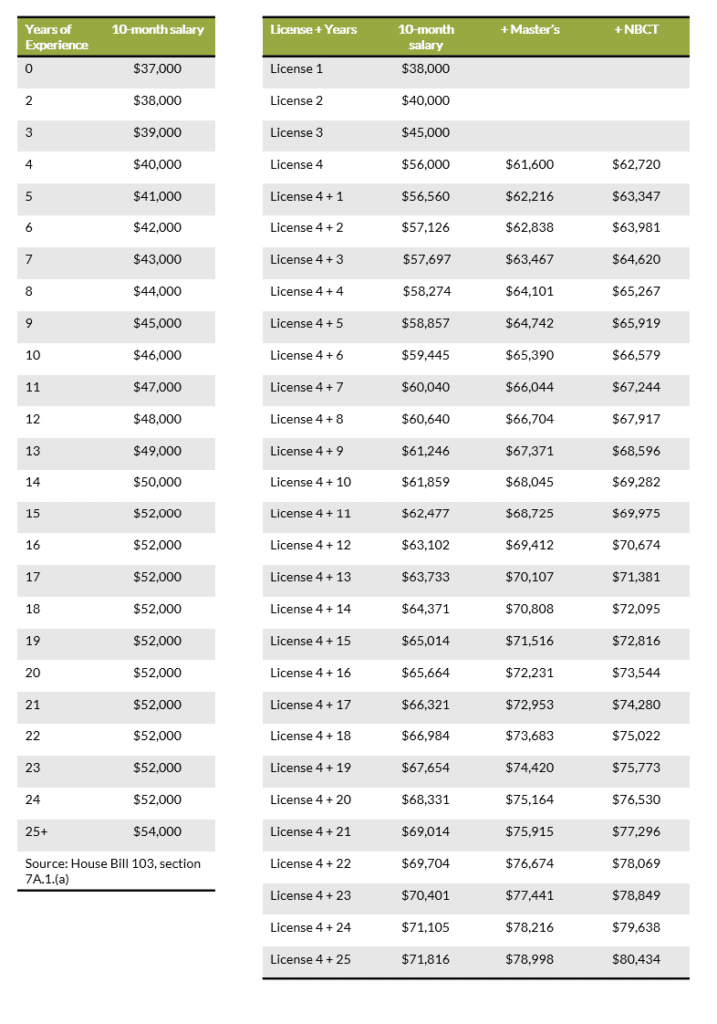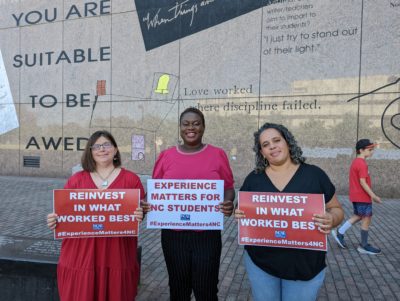
Share this story
- Educators have questions about proposed changes to how they are licensed and paid, and at long last, you can evaluate a proposal before a state commission. Here's what you need to know, and how you can send your feedback before the commission's next meeting. #nced
- While there will be other opportunities to weigh in when the proposal is before the State Board of Education and the state legislature, your capacity to influence the proposal is greatest now.
|
|
What would my license level be?
What are the requirements and supports for that license level?
How much more could I be paid?
Educators have questions, and at long last, you can evaluate a proposal before a state commission and assess the answer to those three important questions.
Last week, the Professional Educator Preparation and Standards Commission (PEPSC) considered an updated draft of a proposal to change how North Carolina teachers are licensed, evaluated, and compensated.
Now, you can take a look at the proposal, anticipate which license level would apply to your years of experience, assess the requirements and supports for the license level, and consider how much more you could be compensated.
First of all, take a look at the different license levels, which would be new. Phrases that have a strike-through have been removed from the proposal based on feedback, while those in orange have been added or edited during PEPSC’s deliberations.
Once you understand the different license levels, then you can get a sense given your anticipated license and years of experience the difference between the current salary schedule (on the left) and the proposed salary schedule (on the right):

As these changes are considered by PEPSC and then by the N.C. State Board of Education before going to the N.C. General Assembly, two scenarios are worth considering as you evaluate the merits of the changes in salary schedule.
If a teacher graduates from an educator preparation program (EPP) and moves up to License 4 in three years, then he/she would earn $375,000 more over the course of the next 25 years of their career under the proposal. For rural districts where most teachers are recruited with “grow your own” strategies, this is a real difference maker — like the difference between not having a second job or being able to buy a house.
Most educators will fall in the next scenario. If an educator currently has five years of experience and plans to work 20 more years in the classroom, he/she would earn nearly $250,000 more over those 20 years under the proposal.
Importantly, these scenarios don’t include raises that may be provided in the budget year to year. They don’t include Advanced Teaching Roles, which can add $5,000-$10,000 under the proposed model. They don’t include local supplements teachers may get from districts. They also don’t include increases included in the proposal for master’s pay and National Board Certified Teachers (NBCT), which you can see in the salary schedule comparison above.
Under this proposed model, teachers would have to demonstrate effectiveness through a set of criteria to advance through licenses and achieve a higher pay, so take a look at that, too.
How to weigh in
This proposal would overhaul North Carolina’s teacher licensure system by introducing levels of licensure, requirements and supports for each license level, and corresponding adjustments to pay.
It’s a big deal.
No action was taken at the meeting last week. The original timeline was for PEPSC to send a final draft to the State Board this fall for approval, but PEPSC Chair and UNCW College of Education Dean Van Dempsey signaled that the commission could take longer if it needs to.
PEPSC plans to continue working on the model at its October meeting. You can send feedback to pathways.feedback@dpi.nc.gov. Tell them what you like. Tell them what you don’t like. Feedback is invited on the licensure pathways, on the requirements and supports, and on the changes in pay.
While there will be other opportunities to weigh in when the proposal is before the State Board and the legislature, your capacity to influence the proposal is greatest now.
“This is important, potentially transformative work for children, educators, schools, and communities in North Carolina,” Dempsey said. “I fundamentally believe that.”
Recommended reading




